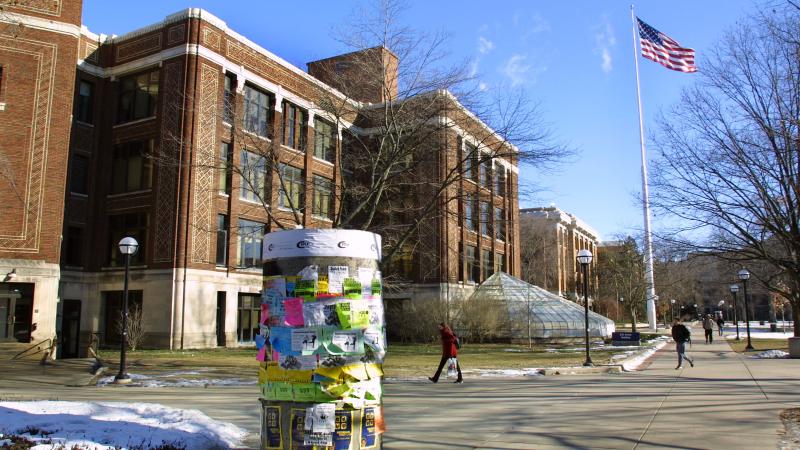More than 1.6 million apprehensions, gotaways fiscal year to date: CBP
More than 1.6 million foreign nationals have been apprehended or "gotaway" after illegally entering the U.S. in fiscal 2023 through February, according to Customs and Border Protection.
More than 1.6 million foreign nationals have been apprehended or reported evading law enforcement officers after illegally entering the U.S. in fiscal 2023 through February, according to Customs and Border Protection apprehension data and gotaway data obtained by The Center Square.
When reporting February enforcement data, CBP stated nationwide total encounters for fiscal 2023 through February totaled 1,285,056, excluding gotaways.
Including monthly gotaway totals previously reported by The Center Square based on data obtained by a Border Patrol agent, at least 358,124 known gotaways in the nine southwest border sectors fiscal year were recorded through February.
Combined, apprehensions and gotaways totaled at least 1,643,180. The number is likely higher because the total doesn’t include all CBP sectors and Office of Field Operation data.
CBP reported overall apprehensions in February were up by 2% from January, apprehensions of single adults and unaccompanied minors were also up by 1.5% and 16%, respectively.
Total apprehensions in February were 212,266, up 2% from January’s 208,511.
Overall apprehensions are slightly higher than the nearly 250,000 The Center Square first reported, which only included Border Patrol data from nine southwest sectors. Official data includes Office of Field operation data.
However, officially reported data excludes known and reported gotaways, those who are detected illegally entering the U.S. between ports of entry, evade capture by law enforcement and don’t return to Mexico or Canada. Officials have explained it’s important to note not all gotaways are known or reported because law enforcement on the ground don’t spot them all, meaning the number of those entering the U.S. illegally is expected to be higher.
The Center Square previously reported that Border Patrol agents in nine southwest border sectors reported at least 67,576 gotaways last month, excluding all other sectors and OFO data.
Apprehensions and gotaways combined last month totaled at least 279,842.
The official total of nearly 213,000 apprehensions last month “includes Border Patrol encounters and includes noncitizens processed at Ports of Entry including individuals who sought an exception to the Title 42 public health order based on certain vulnerabilities and scheduled an appointment to present in advance via the CBP One mobile application,” CBP states.
CBP reported increases in several apprehension categories.
Over two-thirds, 71.4%, of all southwest border encounters were of single adults, totaling 110,722 in February, a 1.5% increase from January.
Unaccompanied children encounters increased 16%; agents apprehended 9,382 unaccompanied children last month compared to 10,870 in January. The average number of unaccompanied children in CBP custody last month was 438 a day, compared to an average 332 a day in January.
Even though apprehensions were up, and after roughly 1,000 foreign nationals rushed the Paso Del Norte bridge in Mexico attempting to enter El Paso, Texas, on Sunday, citing frustrations with CBP’s new phone app, CBP Acting Commissioner Troy Miller credited the app for keeping the numbers down.
“The new border enforcement measures kept February’s overall encounter numbers nearly even with January,” he said. “We are also encouraged by the new functionality in the CBP One mobile application, which has provided migrants the ability to safely and easily schedule an appointment at a Port of Entry to request a humanitarian exception to the Title 42 public health order. The app cuts out the smugglers and decreases migrant exploitation. CBP continues to make improvements to the app to address feedback we have received from stakeholders.”
CBP also reported tens of thousands of foreign nationals were released into the U.S. through the app. It processed over 20,000 foreign nationals at ports of entry as exceptions to the Title 42 public health order and released them into the U.S. It did so “based on an individual vulnerability assessment using the newly available functionality in the CBP One mobile application,” it says.
Prior to a federal judge ruling last week that the Biden administration’s parole program was illegal, CBP reported that “22,755 Cubans, Haitians, Nicaraguans, and Venezuelans (including immediate family members where applicable) were paroled into the country by the CBP Office of Field Operations through the parole processes established for Venezuelans in October and expanded to the additional nationalities in January.”















